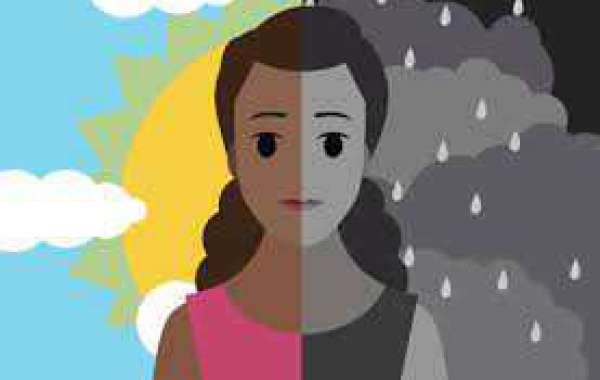Bipolar Disorder is an extremely common condition that can have various symptoms. There are several treatment options available, including Interpersonal and social rhythm therapy (ICSRT) and medication. Bipolar Disorder can also run in families. The disorder typically begins during late adolescence, but can develop earlier in childhood. Both men and women are equally at risk for this condition. However, women often experience more rapid cycling and spend more time depressed than men.
Treatment options
Bipolar disorder treatment options include medication and counseling. You should never make drastic changes to your medications without first consulting with your doctor. Changing medications can trigger withdrawal symptoms, worsening your symptoms. In addition, changing medications can cause a manic or hypomanic episode. Some medications can even cause suicidal thoughts. If this happens, call your doctor immediately. Changing medications can also cause birth defects, so they should never be used during pregnancy. Also, certain medications may interfere with birth control pills.
Antidepressants can help you deal with manic episodes. Atypical antipsychotics, or second-generation antipsychotics, are a type of medication that regulates brain chemicals and prevents excessive dopamine production. These drugs may also help regulate intrusive thoughts and extreme moods. However, researchers are still trying to determine whether these drugs can really help people with bipolar disorder.
Symptoms
Bipolar disorder can cause a person to have dramatic mood changes. People with the disorder may experience periods of mania, then a period of depression, or both. Symptoms of the disorder can last from three days to several weeks. A physician will be able to diagnose the condition and recommend treatment.
If the disorder is not treated, the symptoms can reoccur. The best thing to do is to seek medical attention immediately. If you suspect that your loved one may have bipolar disorder, get them to see a doctor. They can prescribe medication to help you cope with the symptoms of the illness. However, it is important to keep in mind that some medications can have severe side effects.
The most obvious symptoms of bipolar disorder are extreme mood swings and mood changes. These changes can occur several times a year. Symptoms include periods of high or low mood, a lack of energy, and an inability to focus or carry out everyday activities. Symptoms of bipolar disorder may also affect a person's ability to sleep. Symptoms of the disorder vary greatly depending on the severity of the episode. Often, an episode may last a few hours, while others may last a couple of days.
Medications
Medications for bipolar disorder are usually prescribed to treat the symptoms of the disorder. They are meant to stabilize the mood and reduce the severity of highs and lows in a patient's life. While they can cause side effects, they are generally safe. Patients may need to take them for years or even decades. This is called maintenance therapy and can prevent recurrences of episodes. Some medications are anticonvulsants, which can prevent seizures.
The dosage and the type of medication prescribed is important, and you should always follow your doctor's instructions. Your doctor can also adjust the dose as necessary. Never discontinue medication without consulting a specialist. Treatment for bipolar disorder is often effective when it is continued for a long period of time. Occasionally, a break in medication can lead to mood changes. It is important to be open and honest with your doctor about your symptoms, as this will help you achieve the best results.
Interpersonal and social rhythm therapy (ICSRT)
IPSRT is a form of psychotherapy that seeks to help bipolar patients better regulate their moods. It works by teaching patients to be more aware of their own rhythms and to deal with any changes. Unlike other forms of psychotherapy, IPSRT involves regular meetings with a therapist.
IPSRT is divided into four phases: the first phase involves focusing on patient's illness history. The second phase includes four sessions aimed at restructuring and strengthening social rhythms. The third phase involves reinforcing new social rhythms and strengthening the patient's confidence in the techniques learned during the initial phase. The final phase involves two sessions focused on discussing the skills learned and recommendations for future sessions.
A small body of research indicates that social rhythms can influence bipolar disorder. Although studies are limited, a recent study suggests that acute IPSRT could increase the time to remission in patients with bipolar depression. Further studies are underway to evaluate the efficacy of IPSRT as a monotherapy for bipolar II disorder and in adolescents.
Electroconvulsive therapy (ECT)
ECT is a form of treatment that involves sending a carefully controlled electrical current to the brain. It can be very effective and may be a last resort for those who are having a serious episode of bipolar disorder. It is safe for most people, but may be dangerous for some people. It is best performed by a medical professional, and it is not available at home.
This treatment involves the use of small electrical currents through the brain to induce seizures. These seizures help the brain heal and improve symptoms. They may also "reboot" the brain, restoring it to normal functioning. Modern ECT, however, is associated with a few risks. Patients may experience temporary confusion and memory loss.








